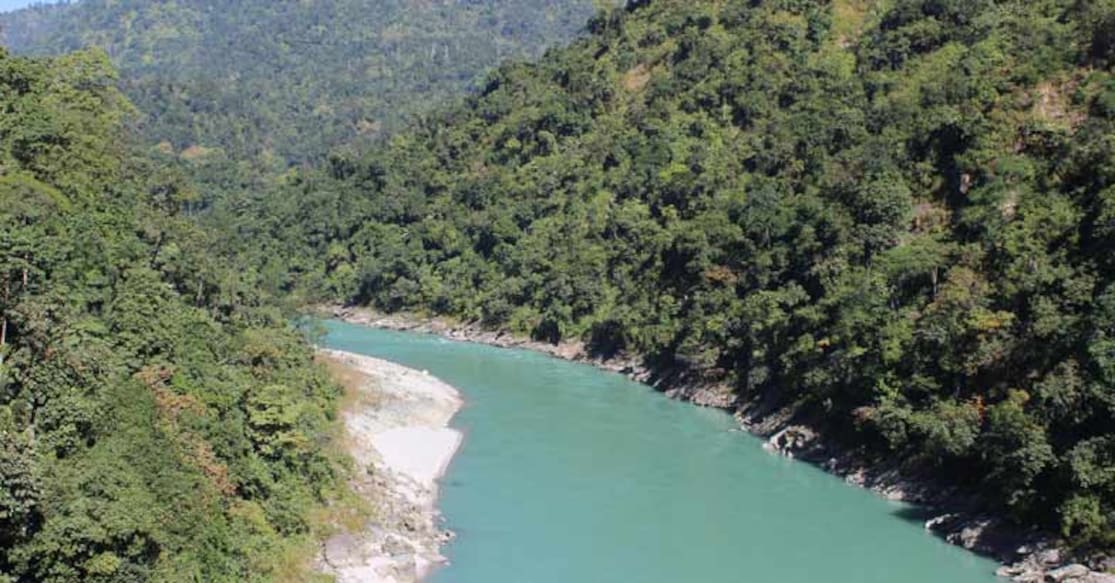Siliguri – The Gateway to North- East

Mail This Article
Siliguri first gave an impression of a sleepy town, the day we journeyed to the Impees Hotel from New Jalpaiguri railway station by autorickshaw. Though we had to pay through our noses, the ride was indeed an enjoyable one as the occupants of this city were slowly getting out of their beds. The weather was cool and invigorating as the majestic Kanchenjunga shone with a silvery aura at a distance. Our notion of a sleepy town turned out to be a wrong one as the day unfolded. The hustle and bustle, by and large was the contribution of the autorickshaws, cycle rickshaws, bicycles and shabby buses jostling for space in the roads. The rise of Siliguri as a major hub began since a major portion of Jalpaiguri district was washed away by floods in 1968. Siliguri, sandwiched between Jalpaiguri and Darjeeling districts is a transit point to destinations like Nepal, Bhutan, Gangtok and Darjeeling. The Bogdarga airport located in the outskirts of the city offers tourist from other states and outside the country an excellent stopover in journeys to all cities in North–East. The Mahananda River, which flows through the city is a major attraction. The places of interest to tourists in the town though are limited to Kali temple and few view points along the banks of Mahananda. The receptionist of our hotel suggested taking an autorickshaw to Sevok, located in the outskirts of the city. This turned out to be excellent idea as we rode out from the din of the city to breathtakingly beautiful landscapes and reserve forest tracts on either side of the road leading to Sevok. A few kilometers after moving out of the town, the traffic thinned dramatically as we entered the Mahananda wildlife sanctuary. The flora and fauna here are unique. Conservation activities have started in right earnest to preserve whatever is left after unchecked poaching and tree felling has left a much depleted reserve. The forest department gives tourists an opportunity to enjoy elephant rides through the forests. Our first halt was a bride across river Nandi which, in fact, is a branching from Mahananda as the river splits into and flows in two different directions around a hill. The river bed was not entirely dry as it flowed alongside one the banks. The view was stunning with a railway bridge in the background adding a romantic touch. It was time to move on as we had a tight schedule. Three and a half kilometers uphill, we reached the steps leads to the Kali temple at Sevok on the side of the road. The temple is perched on of a rocky hilltop. We opted not to get down there as time was running out. Just ahead to this is the point from where the road branches off. One goes to Sikkim and the other to Assam, The Coronation Bridge named in 1937 to commemorate the coronation of King George VI and Queen Elizabeth was completed in 1941. The road to Assam passes through this historic land mark. A sight to behold, the bridge towers about 400 feet above river Teesta flowing underneath with a bluish green tinge. Teesta joins Mahananda a little ahead after which is the Indo-Bangladesh border. This has been a place of dispute between India and its neighbor for quite some time. The vast river beds where these two rivers meet resemble a huge plain spreading miles across. Looking down from the Coronation Bridge, the waters of Teesta looked clear and inviting. Without a moment’s thought, we descended down the steps leading to the river bank. Spending an hour and a half in those banks, occasionally dipping our feet into the water which looked crystal clear from near was in no way enough to satisfy our appetite for more. The spell binding backdrop of mountains and greenery was intoxicating but sadly we were behind schedule and it was time to return. During the evening, a few hours before boarding the train to Thiruvananthapuram, we visited the Bidan and Hongkong markets. All imaginable items were available there but the prices were sky high. Since our hosts had warned us about this, we were not robbed off much money. The apples and oranges displayed seemed fresh and we brought a few. Walking back to the hotel, just on the side of the road was the famous Kanchenjunga stadium where a football match between India and Philippines was in progress. It was 9 p.m. when we reached New Jalpaiguri railway station. A steam locomotive is displayed out the station and has some admirers mostly, kids. The Dibrugarh-Kanyakumari express was late by two hours and the night was getting colder and colder. As the train finally chugged in, I couldn’t help glancing in the direction of Kanchenjunga, which had enthralled the days before, now engulfed by the shroud of darkness. The experiences here, rejuvenating our minds, bodies and souls will stand the test of time, I told myself, snuggling inside a blanket in the berth for a good night’s sleep.

